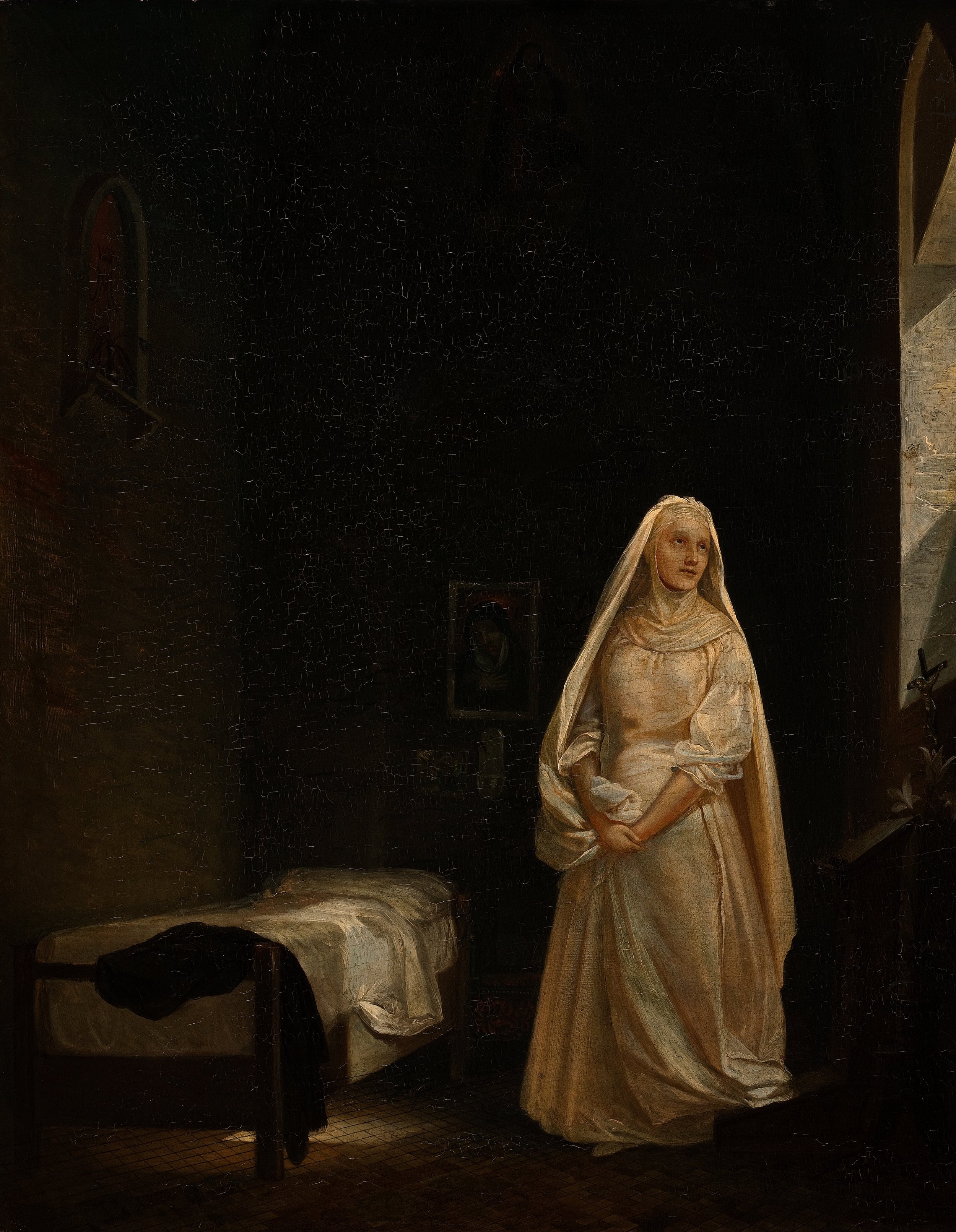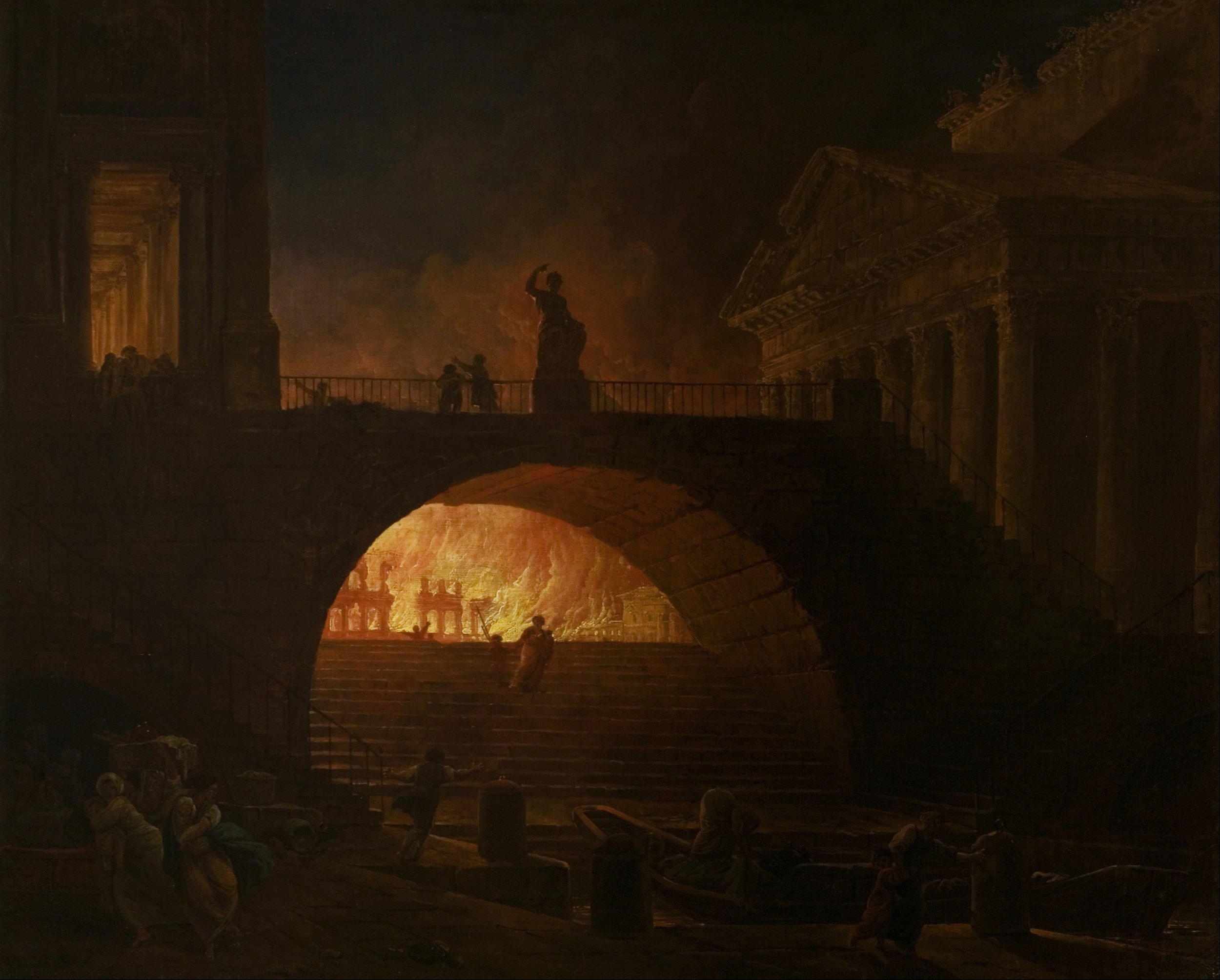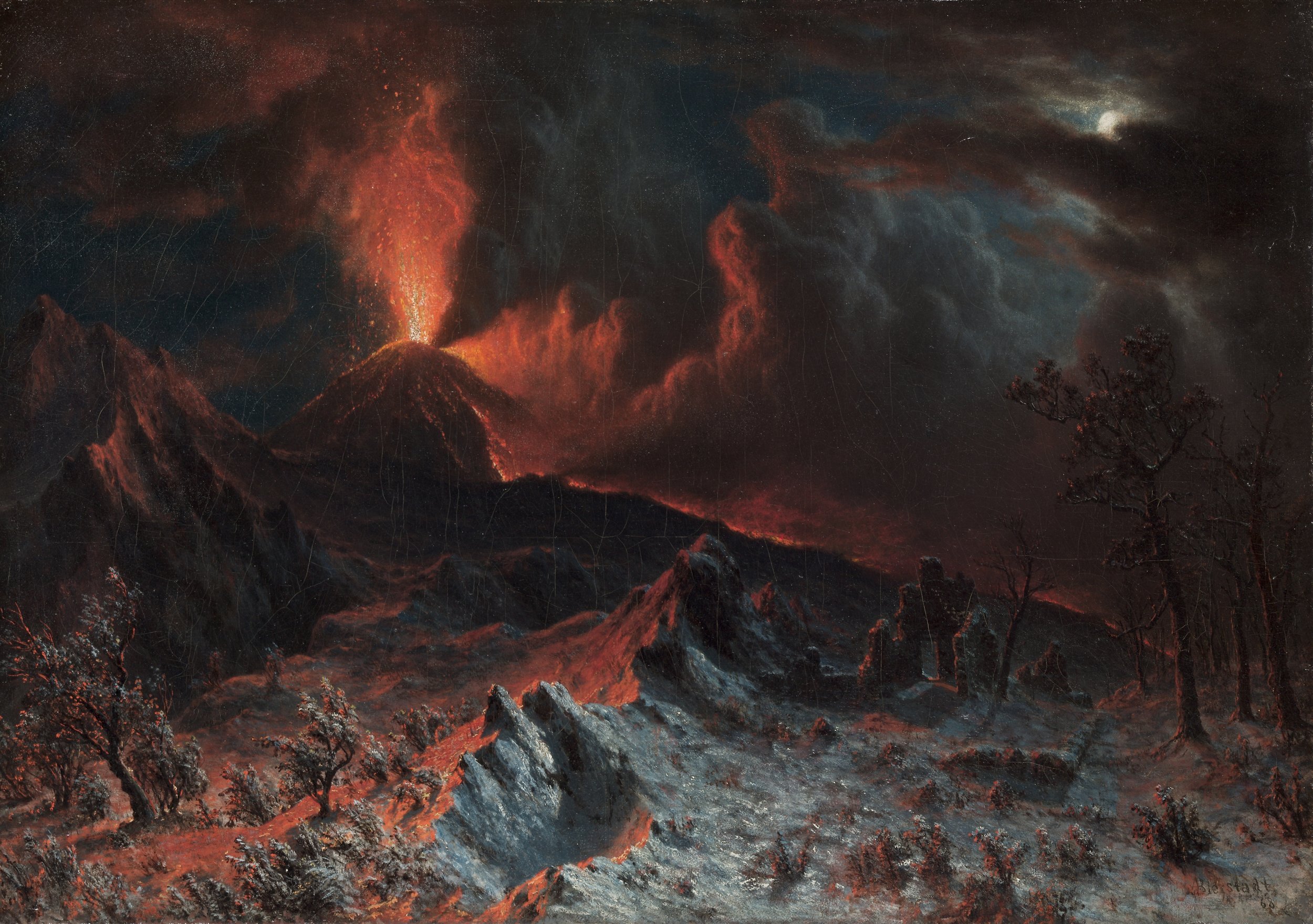The Novel and the Dictator

The Novel and the Dictator
Nadya Williams
On the Man Who Criticized Stalin Yet Lived
It is a cold December night in Stockholm. December 10th, to be precise. The year—1965. A quietly distinguished-looking man, with a tentative smile on his lips, stands in front of the stilled audience, focused on him alone. He is not accustomed to such attention, but he has just been awarded the most prestigious literary award in the world and is about to commence his speech.
To speak of endings—moments of fanfare like this—is boring, prioritizing the unintended destination over the more mundane, slow journey of a lifetime. And in this case, to speak of the ending is to ignore the surprising nature of this story, an admittedly strange tale of a man and a novel. If we look closely, it turns out to be a story about the unexplainable—why some men live, and others die under the rule of dictators. Novels, it appears, have something to do with this, perhaps because they cannot help but tell stories of the soul.
*
The great Russian novels are tragic at first glance in the same way the original tragedies—the Greek ones—are as well. There is no way around it. In the end, everyone dies. Well, maybe not everyone. There are a few left alive, alone, shaken by the tragedy all around, wondering if the dead are the lucky ones. But there, the similarities end. While the fault for the downfall of an Oedipus or an Orestes is a divine curse outside the sufferer’s control, the fault of a Raskolnikov or a Bazarov lies in each man’s desire to make himself his own god.
But what about the writers themselves? Don’t their fates matter? Why did they write these tragedies anyway? I ask these questions as a descendant of Ukrainian Jews, the first generation not to speak Yiddish, and as an ancient historian and writer myself. Writers are people too—this is an essential dimension to remember.
Russians know tragedies all too well, whether they be historians or writers or Jews—or, worst of all—all of the above. Tragedy enters the soul, twists it, and snakes its way into the recesses of memory, giving rise to the worst of emotions—nostalgia and that awful gut-wrenching wish to ask impossible questions: Could things have been otherwise? At what point did the inevitable became inevitable? Maybe this girl, a ghost whose name I don’t even know, this teenage sister of my grandmother, could have boarded the same train with her sister, the one that carried the survivors to an orphanage in Siberia. It was, it turns out, just that train ride that separated those who lived from those who died. Couldn’t we turn it back for just a moment longer—surely the train could have fit in a few more children?
The past doesn’t work like this, though. And so, we live in search of lost time, longing for it while knowing that we can never recover it fully, no matter what Proust claims. History is elusive, but novels—they know things.
*
Of course, the existence of novels relies inextricably on the existence of novelists. Yet e forget this sometimes, reading alone in the comfort of home, perhaps in another language than the one in which the writer composed. But the novel and the novelist share their burden together, not separately, just as they are joined when receiving accolades, should those ever come their way.
And so, we go back to the story at hand. On December 10, 1965, Mikhail Sholokhov, then sixty years old, accepted the most prestigious literary award in the world—the Nobel Prize in literature—for a novel he had completed a quarter century earlier, Tikhiy Don. The title has been translated into English as And Quiet Flows the Don.
Likened at times to Tolstoy’s War and Peace for its scope and length, And Quiet Flows the Don is nevertheless a different sort of novel. Officially classified within the Soviet genre of socialist realism, its protagonists are the Don Cossacks, those legendary fearsome horsemen known for their rough ways and uncompromising love of freedom. Sholokhov knew them well as a close neighbor yet outsider—not being one of them—yet an intimate observer. In his novel, the mighty river Don is personified as a witness to the ordinary, the heroic, the awful. Folk songs had commemorated this well before Sholokhov. Don sees all, absorbs it into its memory, yet on it flows without disruption.
Socialist Realism, the literary movement championed by Stalin, himself an amateur poet in his seminary-attending youth, aimed to promote Soviet culture. This new regime, after all, needed a new literature—along with a new everything else. Crafting the modern man (and woman)—the progressive Soviet comrade—was the regime’s project. A new sort of literature was needed for the task of cheering the newly godless heart.
Indeed, this novel has strange heroes for a new regime, whose plot includes an attempted mob execution of a pregnant woman suspected of being a witch, rape and incest, murder, adultery, and extreme domestic violence— all just in the first thirty pages. The rest of the lengthy tale doesn’t grow gentler. A hopelessly destructive love triangle undergirds it, ending with the death of both women vying for the attention of the male protagonist, the handsome Cossack Grisha.
Whether in peace or war, before the advent of the USSR or after, Sholokhov’s Don Cossacks led tragic lives. Whereas their tragedies were all home-grown before the Russian Revolution, Sholokhov places their plight afterwards firmly at the feet of the Soviet regime. Dubbed “kulaki” (wealthy farmers who were subject to aggressive “dekulakization” policies that deprived them of all equipment and farming animals), the Cossacks died in droves in the 1920s. Sholokhov saw it all first-hand as a young man.
Then the 1930s arrived—and with them, the great Stalinist purge.
*
Perhaps the most remarkable thing about my family’s history is that, to the best of my knowledge, no one was arrested during the purge. Ukrainian Jews, Russian villagers, big city engineers—everyone somehow survived the 1930s. And yet, their souls were stamped.
In the memories she finally recorded towards the end of her long life, my Russian grandmother recalled her parents’ sleepless nights during that decade—keeping vigil in the dark while listening for approaching cars in the night. Could it be coming for them? Will they be the next ones to disappear into the Gulags, never to return? Night after night, they were spared. But both real stories and novels from the period speak of the tragedies all around.
In his trilogy set during this time, Children of Arbat, Anatoli Rybakov follows a group of young friends in a neighborhood in Moscow, whose lives were shattered Greek tragedy-style, by a curse outside their control. It was, put simply, the curse of living under the rule of a dictator. Rybakov’s novel was finally published during my childhood—decades after the author had written it. It is perhaps a miracle that its author survived. But then, we could say the same about Sholokhov.
*
As Sholokhov prepared his acceptance speech in 1965, I imagine him feeling surprised to find himself in the limelight. Of course, I’m projecting, but had he felt any degree of bewilderment, there were many reasons. True, by that point, he was internationally known and respected. Indeed, he was the runner-up for the Nobel the previous year. That prize went to Jean-Paul Sartre, by the way.
And yet, domestically, everything about Sholokhov’s career was unexpected, not going according to the script by which so many other distinguished writers of his generation lived and—in most cases—died too young. Even his ability to accept the Nobel prize as a celebrated writer and representative of the USSR is surprising, evident by an age when “To the success of our hopeless cause” was used as a common toast—now adopted by historian Benjamin Nathans as title of his new book about this era’s Soviet dissidents.
Just seven years earlier, Boris Pasternak was awarded the Nobel for Doctor Zhivago, yet the Soviet regime did not allow him to accept the prize. And back in 1933, when dissident poet Ivan Bunin received the Nobel Prize for his semi-autobiographical novel, The Life of Arseniev, he accepted it as an exile from his Motherland. His victory (along with the rest of his writings) was denounced for its anti-Soviet leanings (making things extra awkward, Bunin beat out none other than Gorky, Stalin’s favorite, for that particular year’s award).
But perhaps the greatest surprise of all, as it may have been to Sholokhov at times, is that he lived. At a time when every night could be one’s last—for unnatural reasons—life is a gift. As we look at his literary contemporaries, it is the study of an open grave, a vast pit filled with bodies—those of Osip Mandelstam, Nikolai Gumilev, and a long list of distinguished Yiddish-Jewish writers.
Over three agonizing decades filled with unspeakable suffering becoming much too common, the poet Anna Akhmatova, mentally composed her heart-rending Requiem for the victims of the Gulags. In poetry, she documented the arrests, the executions—all prompted by a question she was once asked by another woman, another mother waiting in a queue on a bitter winter night by the Leningrad prison to hear the fate of her child: who can tell this awful story? “I can,” Akhmatova responded, her one-word response in Russian becoming the beginning of her epic of forbidden national grief. She survived to write it down eventually—but just barely. Miraculously, her son, Lev, the one whose fate she feared, survived as well.
Akhmatova too was on the shortlist for that 1965 Nobel Prize, the one that Sholokhov won. Some on the committee had recommended awarding the prize jointly to her and Sholokhov— providing a glimpse into their state of mind: an international awareness of the suffering of the Russian people under Stalin, then dead for twelve years, was slowly growing.
*
It was on another cold winter night, this one in February 1956, at the Twentieth Congress of the Communist Party, that something novel happened. Nikita Khrushchev stood in front of this Congress and openly admitted that some “excesses” happened under Stalin.
Such criticism of the long-lionized leader was shocking. It opened the floodgates that the regime so cautiously regulated. Was this a new era of free expression? Not so fast, the fate of the poet and novelist Boris Pasternak reminds us. Two years later, in 1958, the Communist Party pressured him into turning down the Nobel Prize in literature. Perhaps not so much has changed since the days of Stalin—at least executions of poets were no longer regularly on the menu.
Indeed, the violent persecution of poets and other writers was a staple of the Communist regime. Under the rule of Stalin, Pasternak and Bulgakov were among the few well-known names, along with Sholokhov, to avoid arrest and execution. Unlike Sholokhov, however, they faced staunch opposition to their publications. Even though we can read critiques of the regime in his work too, Sholokhov nevertheless received award after award—both the Stalin prize and the Lenin prize!—and was allowed to accept the Nobel as USSR’s most celebrated novelist.
Most surprising of all, Sholokhov was one of the few men who ever criticized Stalin—and yet lived. In the 1930s, Sholokhov sent Stalin several letters bemoaning the plight of the Don Cossacks under Communism—the starvation, the deprivations, the extreme poverty—asking for his assistance. Have pity on their suffering, he begged. Stalin listened, and most shocking of all, wrote back respectfully, agreeing to help.
It feels eerie now to read letters from the cruel butcher, responding at length to the passionate plea of a novelist and addressing him politely as Comrade Sholokhov, as though a friend. Why him?
There are many unknowns, we must reluctantly accept. We cannot know the minds of men or their motives. . Why would the man who ordered executions of so many others over a minor displeasure, take criticism and advice from a young writer? Why would he keep allowing this writer to criticize the regime so powerfully, not only in private letters but in published fiction, while persecuting so many others who wrote along the same lines? What was so special about Sholokhov? We should wonder, just as perhaps he did himself. In the end, we just don’t know. His magnum opus, with its open depiction of atrocities, local and external to the Cossack community, only raises more questions.
Sholokhov’s work does not have the noble plot lines of Tolstoy; he lacks the lyricism of Pasternak. Most notable of all, he does not seem to possess the yearning for the transcendent that peeks so resolutely through the writings of Dostoevsky or, even, Sholokhov’s younger contemporary, Solzhenitsyn, who would go on to receive the 1970 Nobel Prize for his Gulag Archipelago. Instead, we see a life of doom, gloom, extreme violence—all for nothing. The main female protagonist of the novel, Aksinia, dies a senseless accidental death, leaving her lover alone and confused at the end of the book. The rest of the novel’s characters fare no better.
Like in a good Greek tragedy, by the end of And Quiet Flows the Don, most of the protagonists are dead, and those who are not are left in despair. All for what? Such answers were not the promises of the glorious Communism Lenin and his ilk championed. Realist as the novel is, it seems an unlikely representative for the Social Realism genre—no one wanted the new Communist state to be like this.
In fact, we have a second mystery here. In addition to asking why Stalin spared and approved of Sholokhov, we might also ask why Sholokhov so recklessly wrote what he did while witnessing the fate of other writers all around. As Solzhenitsyn’s own tale of misfortunes reminds, following just a brief remark, it did not take much to get a one-way ticket to the Gulag.
*
What about all the novels that were never written because the girl who dreamed of writing them lies in an unmarked mass grave somewhere on the edge of what used to be a Ukrainian Jewish settlement where no one even remembers that Jews once lived there? They’ve been gone long enough—since 1941, to be precise.
The death of people means the death of novels too. The genocide of people who spoke and wrote in a particular language, now mostly gone, means the destruction of their libraries—not only the ones in the past, but also the ones that should have come but never will.
Historians don’t deal with counterfactuals, but how can we not ask this question: What might they have written, had they lived? And now, in the Ukraine of 2024, the same question surfaces, as writers, poets, novelists, and artists are killed in another war, unleashed by another Russian dictator.
In an excerpt from her book, the Ukrainian writer Viktoria Amelina reflected on the incongruous nature of “The Shell Hole in the Fairy Tale”—so much death and destruction in places that should have been devoted to life, to children. Her book lay unfinished at the time of her death in 2023, when a missile hit the pizzeria where she was meeting other journalists for lunch. What if she could have finished her book? What if she lived?
*
Recently, I tracked down and read Sholokhov’s acceptance speech—there at last, were hints of an answer and another surprise.
His victory, Sholokhov said, is a vindication of the power of the novel as a genre. According to him, it is the novel that allows us to explore real life beyond the “little me”—a focus on the self. Books—and especially novels—he insists, are an art that should make people better, purer, nobler of soul. Novels should encourage our love for other people.
Great novels, in other words, are transcendent—they call us into a world outside ourselves and outside what is readily visible in the here and now. They take on another life, with the author as its facilitator, bringing it forth to the readers, whose souls will be transformed by the act of reading, reflecting, and remembering this tale they have entered.
If this is how people read, might not a dictator have read likewise? We will never know, and it seems surreal or even sappy to consider the possibility. Perhaps even Stalin, a monster who crushed so many lives, yet was drawn to music and art his whole life, felt these possibilities when conversing with Sholokhov and reading his work.
In her memoir, Galina: A Russian Story, the legendary opera singer Galina Vishnevskaya, who survived the Leningrad blockade and became an artist at the Bolshoy Theatre in Moscow, remembers Stalin frequenting the opera. He would sit in the audience like an ordinary man, visibly delighting as the music of Verdi, Puccini, and Bizet washed over him. The rain falls on the just and the unjust alike. To love beauty is so natural, so human, so ordinary.
But then, many a Russian dictator had a poetical soul.
Nadya Williams
Writer & Editor
Nadya is managing editor at Current and contributing editor at Providence and Front Porch Republic. She is the author of Cultural Christians in the Early Church (2023) and Mothers, Children, and the Body Politic (2024). She and her husband Dan have one adult son and two children still at home. They live and homeschool in Ashland, Ohio. You can find her on Substack at Cultural Christians in the Early Church.
Photography by Michael Annaert




